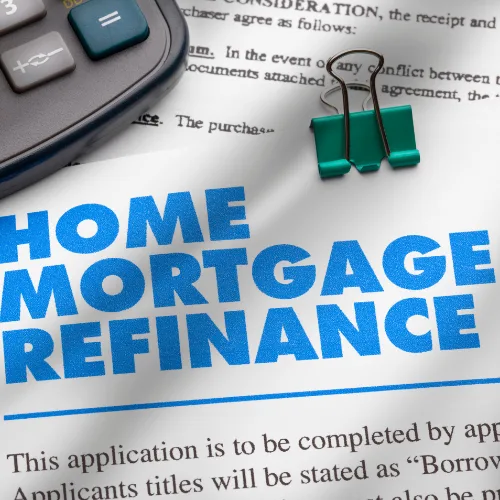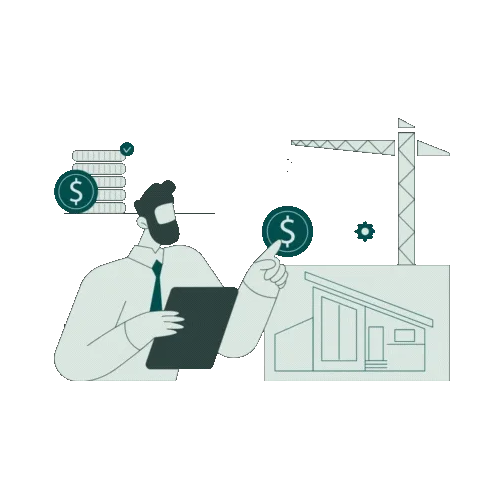The Ultimate Mortgage Refinancing Options in Canada: Everything Canadians Need to Know
Ever wish you could redo your mortgage for a better deal, extra cash, or simpler payments? That’s what mortgage refinancing is all about. In Canada, refinancing can help you secure a lower interest rate, shorten or extend your mortgage term, consolidate debts, or tap into your home’s equity. But is it the right move for you? In this guide, we’ll break down the top refinancing options for Canadians, step-by-step, so you can confidently decide if refinancing fits your life and wallet.
On this Page
Introduction: Why Refinance Your Mortgage in Canada?
Many Canadians see a mortgage as a big monthly payment that never changes. But life moves fast—maybe you got a raise, or perhaps you’re facing unexpected bills. Mortgage refinancing lets you adapt. You replace your current mortgage with a new one—often at a better rate or with different terms that match your goals. By learning these mortgage refinancing options in Canada, you can:
- Save Money with a lower interest rate.
- Access Home Equity for renovations, tuition, or emergencies.
- Consolidate Debt into one simpler (potentially lower-rate) payment.
- Change Your Term to pay off your home faster (or slow down to free up monthly cash).
This guide explains how refinancing works, what it costs, which paths you can choose, and how to avoid pitfalls. Let’s get started!
(Tip: Already curious how refinancing might change your monthly payments? Check out our Comprehensive Mortgage Calculator or our Compare and Save Calculator to explore new scenarios.)
Section 1 – What Is Mortgage Refinancing?
Refinancing means you pay off your existing mortgage by taking out a new mortgage—often with updated rates or conditions. It’s like trading in an old car loan for a new one with better features.
Real-Life Example
Kim has a 5-year fixed mortgage at 4.5%. Two years in, mortgage rates in Canada drop, and she spots a 3.2% deal at another bank. By refinancing (paying off her old mortgage with a brand-new one), she could save thousands in interest, even after possible penalties.
(Need quick facts on interest rates? Browse our Blog Posts for the latest tips on “affordable mortgages.”)
Section 2 – Why Refinance? (Common Reasons)
- Lower Interest Rate
- Possibly reduce your monthly payments and save on interest over the mortgage’s life.
- Change Your Mortgage Term
- Shorten it to become mortgage-free sooner—or lengthen it to free up monthly cash.
- Debt Consolidation
- Merge higher-interest debts (like credit cards or car loans) into your mortgage, typically at a lower rate.
- Cash Out Home Equity
- Use your built-up equity (the difference between your home’s value and your mortgage balance) for big projects, emergency funds, or investing.
(Curious about your new monthly payment after consolidation? Try our Mortgage Affordability Calculator to see what fits your budget.)
Section 3 – Types of Mortgage Refinancing Options in Canada
Below are three main paths Canadians often explore:
1. Rate-and-Term Refinance
- What It Is: You adjust the interest rate, mortgage term, or both, but you don’t increase the total loan amount by much.
- When to Consider: If rates are lower now than when you first got your mortgage, or if you want to switch from variable to fixed (or vice versa).
- Pros:
- Potential interest savings.
- Could shorten your term without a massive jump in monthly payments if rates are better.
- Cons:
- Prepayment penalties might apply if you break your existing mortgage mid-term.
2. Cash-Out Refinance
- What It Is: You borrow more than your current mortgage balance, turning your home’s equity into cash.
- When to Consider: Big home reno? Paying off multiple high-interest loans? Funding a child’s education?
- Pros:
- Access large sums at usually lower mortgage rates than personal loans.
- Flexible: you can use the money however you like.
- Cons:
- You owe more on your home.
- If the housing market dips, you risk negative equity (owing more than the home is worth).
3. HELOC (Home Equity Line of Credit)
- What It Is: A line of credit secured by your home, separate from your main mortgage. You only pay interest on the amount you actually use.
- When to Consider: If you want ongoing, flexible access to your home’s equity.
- Pros:
- Only pay interest when you draw funds.
- Reusable credit line (pay it down and use it again).
- Cons:
- Variable interest rates can rise quickly.
- Could tempt overspending if not managed well.
Section 4 – The Costs of Refinancing
Refinancing isn’t always free. Watch out for these 4 potential costs:
- Mortgage Prepayment Penalties
- If you break your mortgage early, you might pay a penalty. Typically, it’s 3 months’ interest or an Interest Rate Differential (IRD), whichever is higher.
- Legal Fees
- A lawyer or notary finalizes paperwork. Expect $500–$1,500.
- Appraisal Fee
- Lenders may want an updated property value. Usually $300–$500.
- Discharge Fee
- Some lenders charge $200–$300 to release your old mortgage.
(Hot tip: Explore your province’s rules on penalty fees or read our Comprehensive Guide on Mortgage Penalties for extra insights.)
Section 5 – Figuring Out If Refinancing Is Right for You
1. Potential Savings vs. Penalties
Run the numbers. If you’ll save $10,000 in interest over the remainder of your mortgage but pay a $3,000 penalty, it’s probably worth it. But if you’re only saving $2,000 total, maybe hold off until your term ends.
2. Breakeven Point
This is how long it takes to “make back” the costs of refinancing. If it’s 2 years, but you plan to sell your home in 1 year, you’d lose money.
3. Your Financial Goals
- Shortening Your Mortgage: If you want to be mortgage-free quickly, choose a shorter term (and see if you can handle higher monthly payments).
- Lowering Monthly Payments: Choose a longer term or lower rate.
- Accessing Equity: Cash-out refinance or a HELOC might be best.
(Need more clarity? Our Compare and Save Calculator can show how different rates and terms stack up side by side.)
Section 6 – Real-World Refinancing Example: Amir’s Story
Amir has 3 years left on his 5-year fixed mortgage at 3.8%. He notices new mortgages around 2.9%. Should he refinance?
- Check Penalty: His lender says the penalty is $2,500 for ending early.
- Calculate Interest Savings: Over the next 3 years, switching to 2.9% might save him around $6,000 in interest.
- Net Savings: $6,000 (savings) – $2,500 (penalty) = $3,500 net.
- Decision: Amir refinances, pockets $3,500 in savings, and chooses a slightly shorter term to pay off faster.
Section 7 – Working with a Mortgage Professional
A mortgage broker or advisor can walk you through each refinancing step, comparing lenders to find a better rate or a more flexible option. They’ll also help you avoid big penalties or hidden fees. Our team at The Genesis Group has guided thousands of Canadians toward the best refinancing deals that align with their budgets and long-term plans.
Section 8 – FAQs About Mortgage Refinancing Options in Canada
Below are the most common questions about Mortgage Refinancing Options in Canada. For more details, be sure to check out the rest of our 50+ Blog Posts on all things mortgage-related.
What’s the difference between a “cash-out refinance” and a HELOC?
- Cash-Out Refinance: You replace your existing mortgage with a bigger loan, receiving the difference in cash.
- HELOC: You keep your current mortgage but add a separate line of credit tied to your home equity.
Will I always face a penalty for refinancing early?
Often, yes. Most fixed-rate mortgages charge a penalty if you break mid-term. Variables sometimes do only 3 months’ interest. But the exact rule depends on your lender and mortgage contract.
How do I know if I qualify for a lower rate?
Lenders check your credit score, income stability, and debt-to-income ratio. If you’ve improved financially since first getting your mortgage, you might qualify for better terms.
Can first-time homebuyers refinance too?
Absolutely! Though “first-time homebuyer tips” usually focus on buying, you can refinance if you’ve built up some equity. Just be mindful of any early penalties.
Where can I learn more about mortgage rules and programs?
For official info, visit the Government of Canada’s mortgage page or check out CMHC’s website.
Refinancing your mortgage can feel like pressing reset—you might snag a lower interest rate, tap into your home’s equity, or reorganize your debt for simpler payments. As you explore mortgage refinancing options in Canada, remember to:
- Compare costs vs. savings to ensure you come out ahead after penalties or fees.
- Check your financial goals—are you aiming to be mortgage-free faster, or do you need monthly breathing room?
- Use the right tool—cash-out, rate-and-term, or HELOC.
- Consult experts—mortgage professionals can help you avoid pitfalls.
If you’re ready to see how refinancing could improve your finances, contact our team at The Genesis Group. We’ll guide you through everything from penalty calculations to exploring the best lenders, ensuring you get the peace of mind and real savings you deserve. Let’s turn your mortgage into a tool that works for you, not the other way around!















